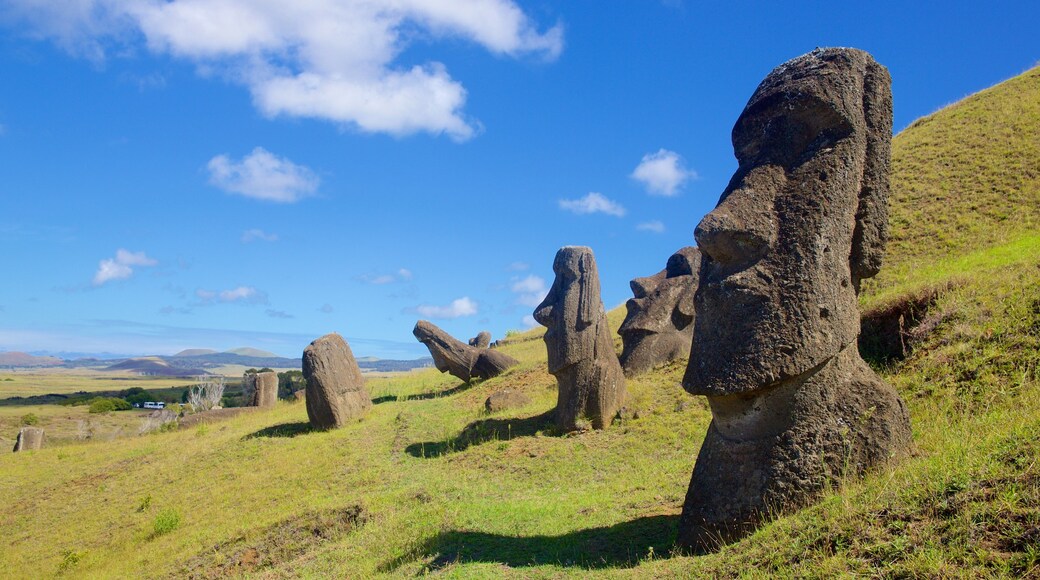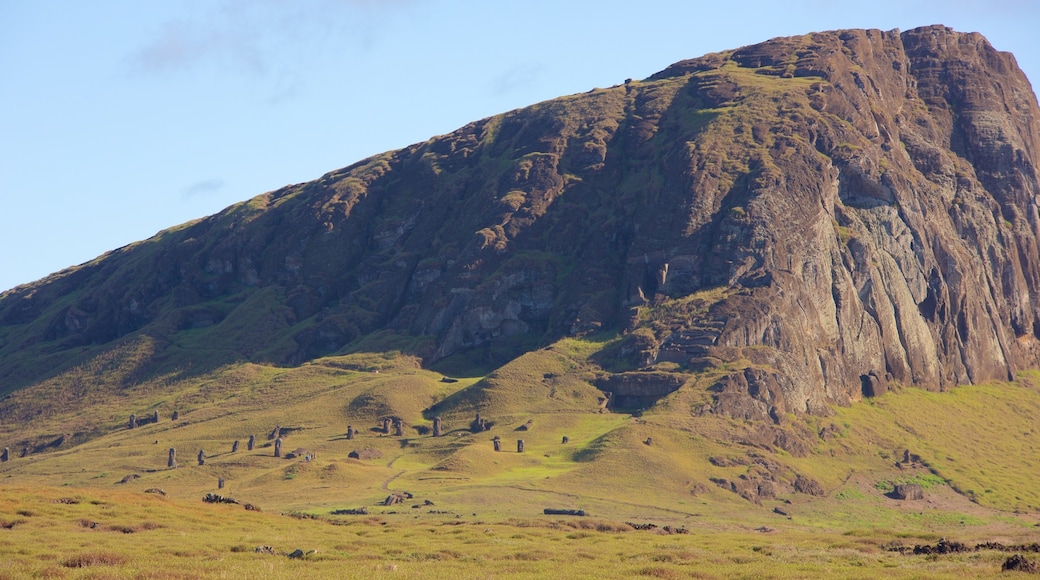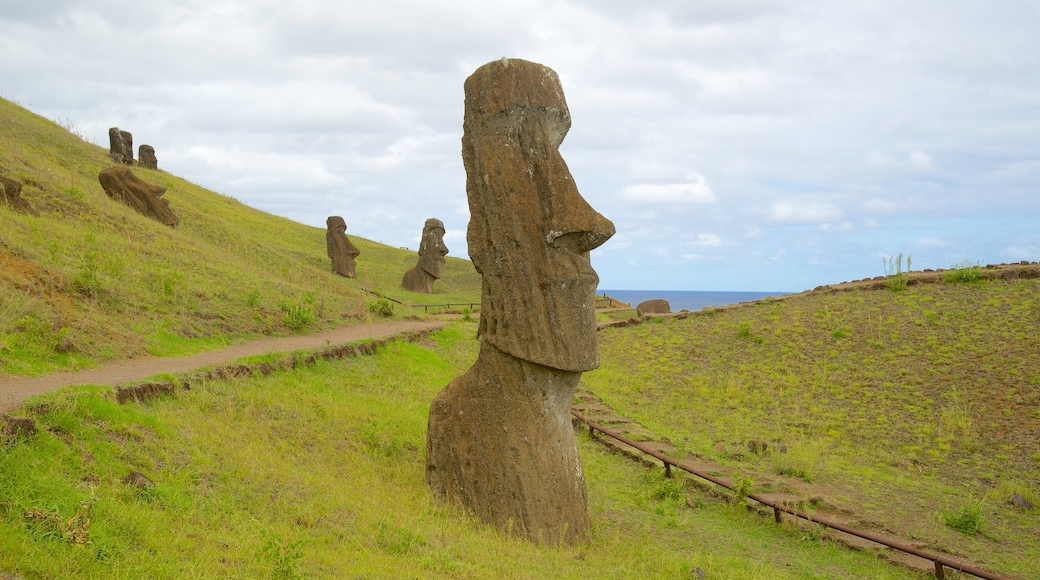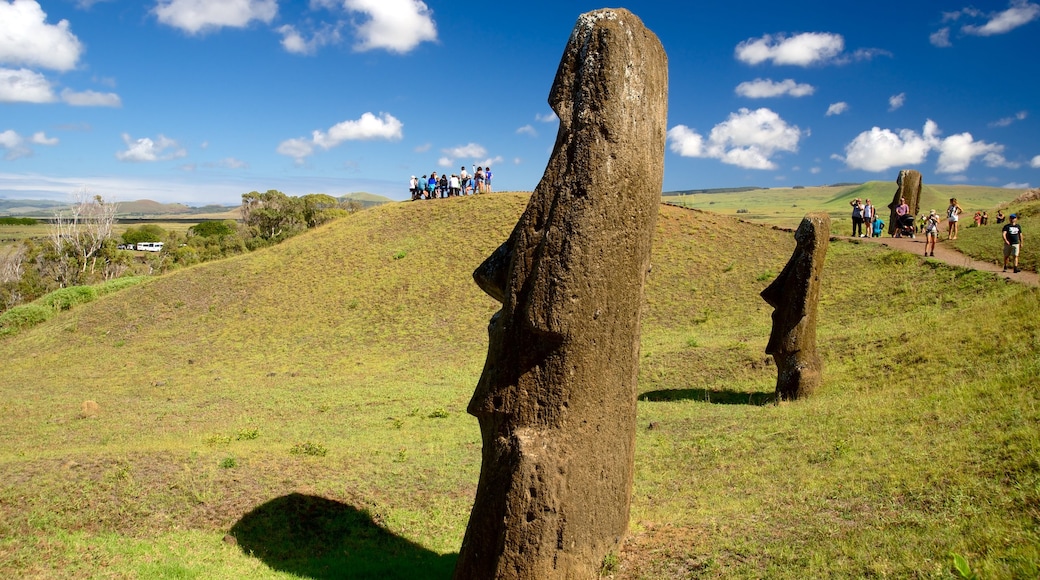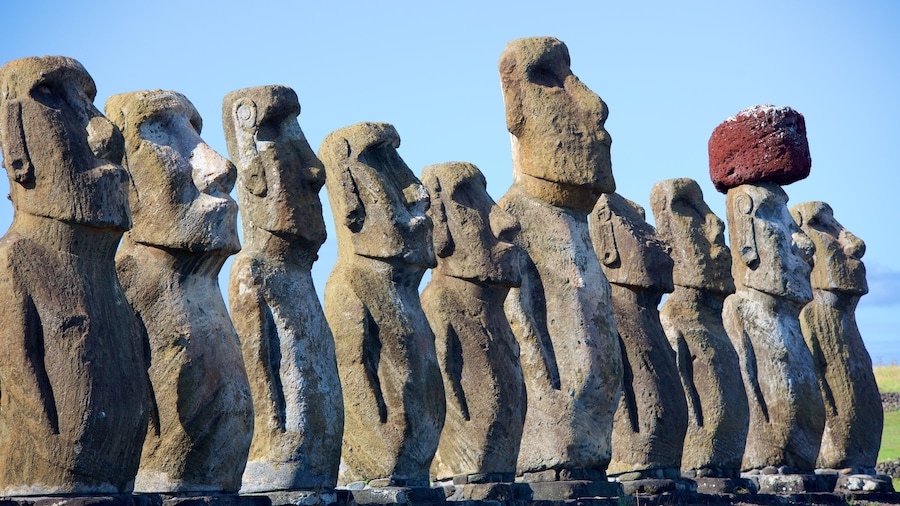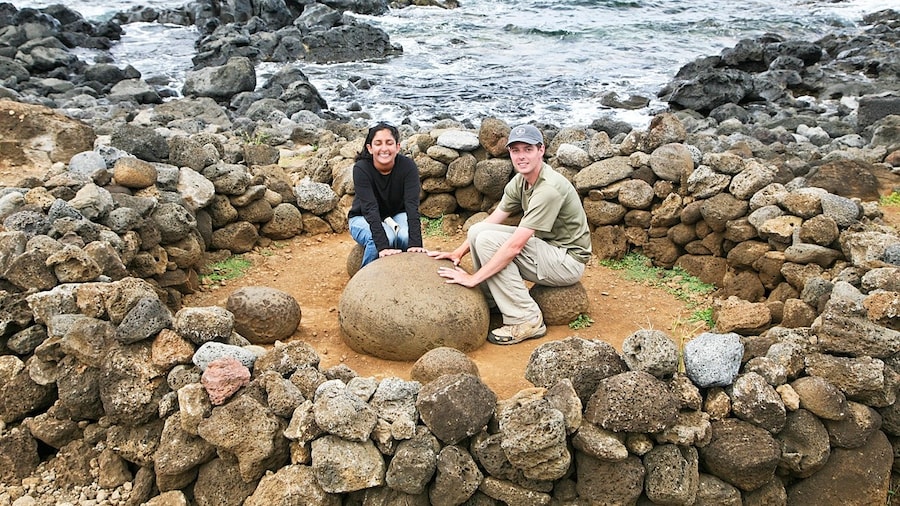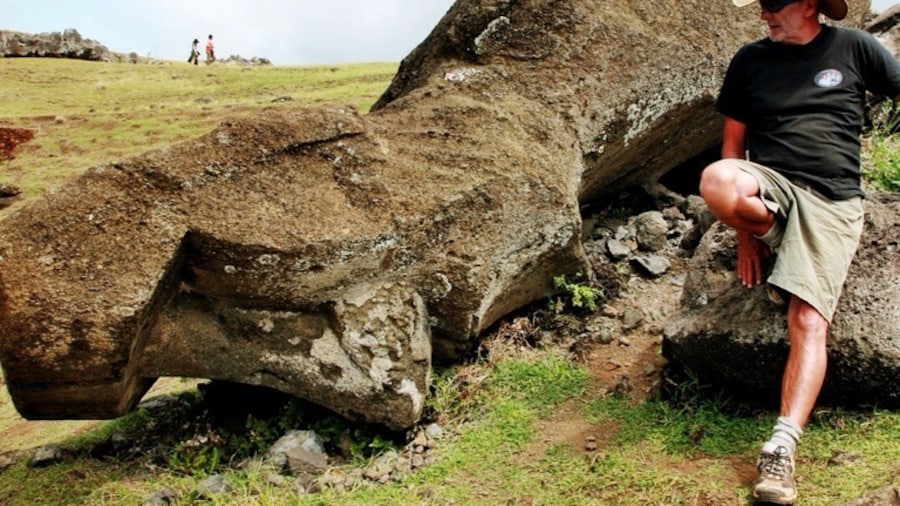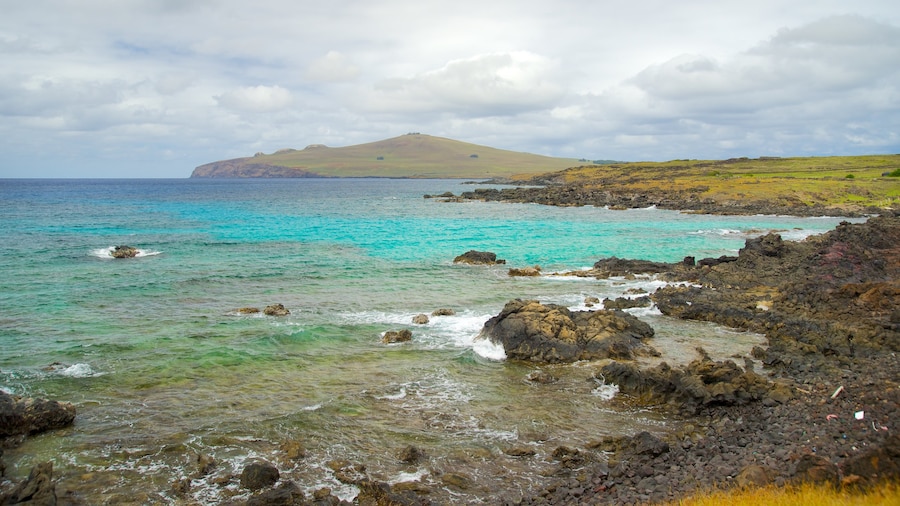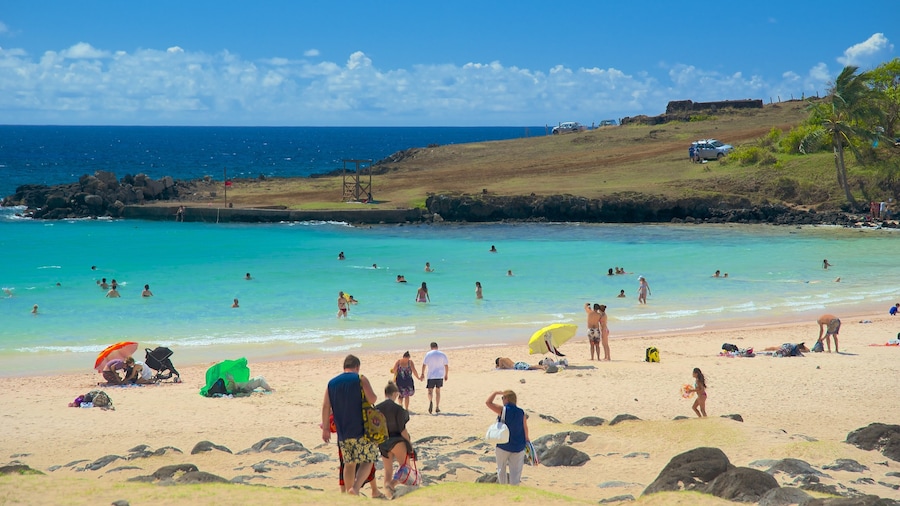See a carved stone figure that is almost twice the height of any other statue on Easter Island and hundreds more sculptures at this volcanic crater.
Found on the lower slopes of the Terevaka Volcano, the Rano Raraku volcanic crater is where Easter Islanders quarried rock to make their world-famous moai head statues. Today, 397 moai sculptures remain scattered on the site, many of which are incomplete. Inspect the vast range of moais, which includes the island’s largest statue and other distinctive figures.
If you are visiting Easter Island for its moai, look no farther than Rano Raraku. Bring a camera to take photos of the statues, hundreds of which are planted in the ground around the crater. Look for the tallest moai on the island, which measures 71 feet (22 meters) in height. This massive moai is almost twice as tall as any other head sculpture and is estimated to weigh between 352,500 and 401,000 pounds (160 to 182 metric tons).
Examine the bizarre, deformed sculptures that seem to have been abandoned midway through the process. Many moai projects are believed to have been halted after the carvers encountered unbreakable rock.
Note how several of the moais outside of the quarry are buried up to their shoulders. These statues lack a pukao (traditional hat) and their eyes have not been carved. They are also among the few moai left unscathed from the island’s civil wars.
Don’t miss the bearded Tukuturi statue, which is much more realistic in style than most typical moais. Notice how it is in a kneeling position, with its head gazing up at the sky. This posture mimics the position of choir singers during important festivals known as riu. Legend has it this statue was a depiction of a moai sculptor and that it was erected to watch over all the craftsmen.
Rano Raraku is one of the seven main sections of the Rapa Nui National Park. You must pay a fee to enter the park, though Chilean natives get a discounted price.
Find Rano Raraku near Ahu Tongariki in the southeastern part of the island. Driving here from Hanga Roa will take about 30 minutes.
